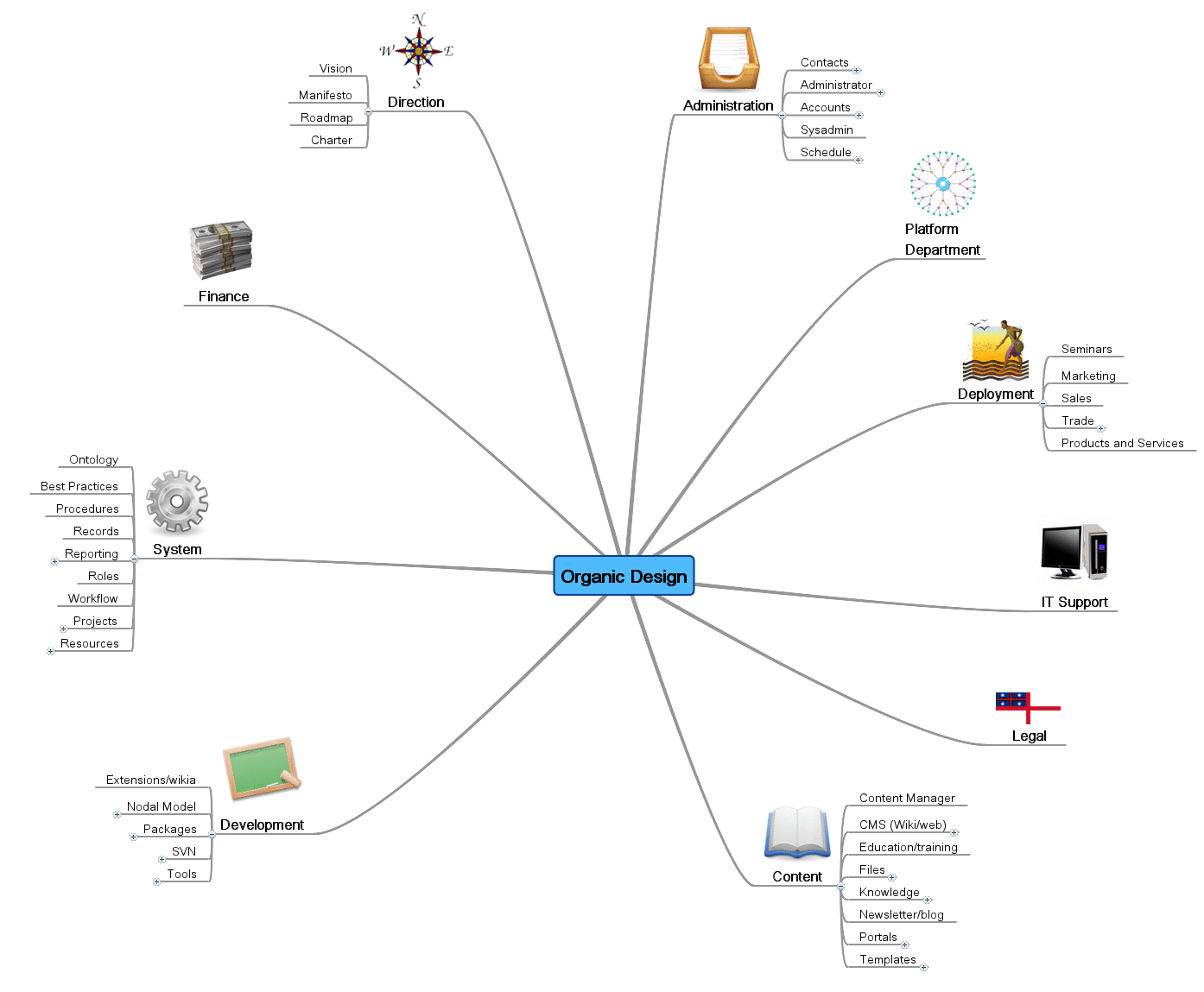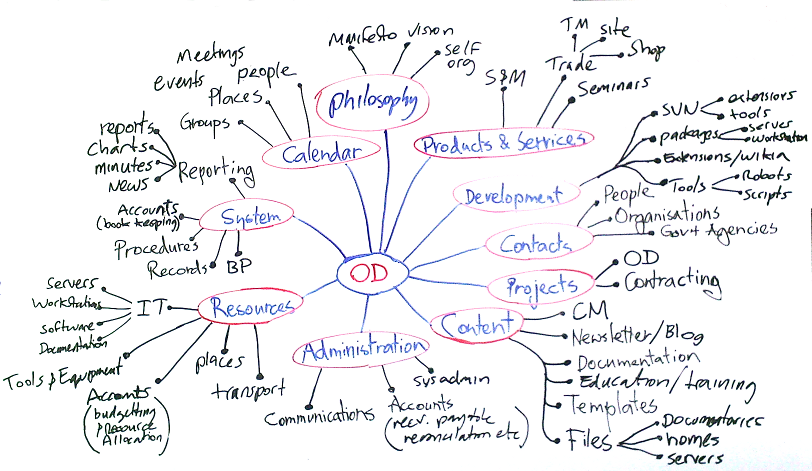Difference between revisions of "Organic Ontology"
(some text as intro to ontology) |
m |
||
| Line 1: | Line 1: | ||
== Current Organic Design Ontology == | == Current Organic Design Ontology == | ||
| − | |||
[[File:Organic Ontology exported mindmap.gif]] | [[File:Organic Ontology exported mindmap.gif]] | ||
To visit the map on MindMeister, follow: http://www.mindmeister.com/22196902/organic-design | To visit the map on MindMeister, follow: http://www.mindmeister.com/22196902/organic-design | ||
| + | |||
| + | This is the top level structure of information portals for Organic Design. We intend to use this structure to navigate our system and do our work. Currently this is only a snapshop of our ontology which is manually recreated in the sidebar tree. Every top level node (e.g. "Direction") represents a significant aspect of the organisation which has an information portal where related information can be accessed or created. Information portals (or simply "Portals") are usually the entry point to more fine-grained data structures such as lists of documents or records created with forms (e.g. Timesheets, Task lists, Memos, etc.). Together, the top-level ontology with the portals structure as well as the various record types and reports used by the organisation represent an increasingly complete and functional description of the system the organisation uses. This structure should be accessible through the Internet and editable through a web browser - with due process and permissions where required. | ||
{{#tree:root='''Organic Design'''| | {{#tree:root='''Organic Design'''| | ||
*[[Philosophy]] | *[[Philosophy]] | ||
Revision as of 11:19, 6 July 2009
Current Organic Design Ontology
To visit the map on MindMeister, follow: http://www.mindmeister.com/22196902/organic-design
This is the top level structure of information portals for Organic Design. We intend to use this structure to navigate our system and do our work. Currently this is only a snapshop of our ontology which is manually recreated in the sidebar tree. Every top level node (e.g. "Direction") represents a significant aspect of the organisation which has an information portal where related information can be accessed or created. Information portals (or simply "Portals") are usually the entry point to more fine-grained data structures such as lists of documents or records created with forms (e.g. Timesheets, Task lists, Memos, etc.). Together, the top-level ontology with the portals structure as well as the various record types and reports used by the organisation represent an increasingly complete and functional description of the system the organisation uses. This structure should be accessible through the Internet and editable through a web browser - with due process and permissions where required.









